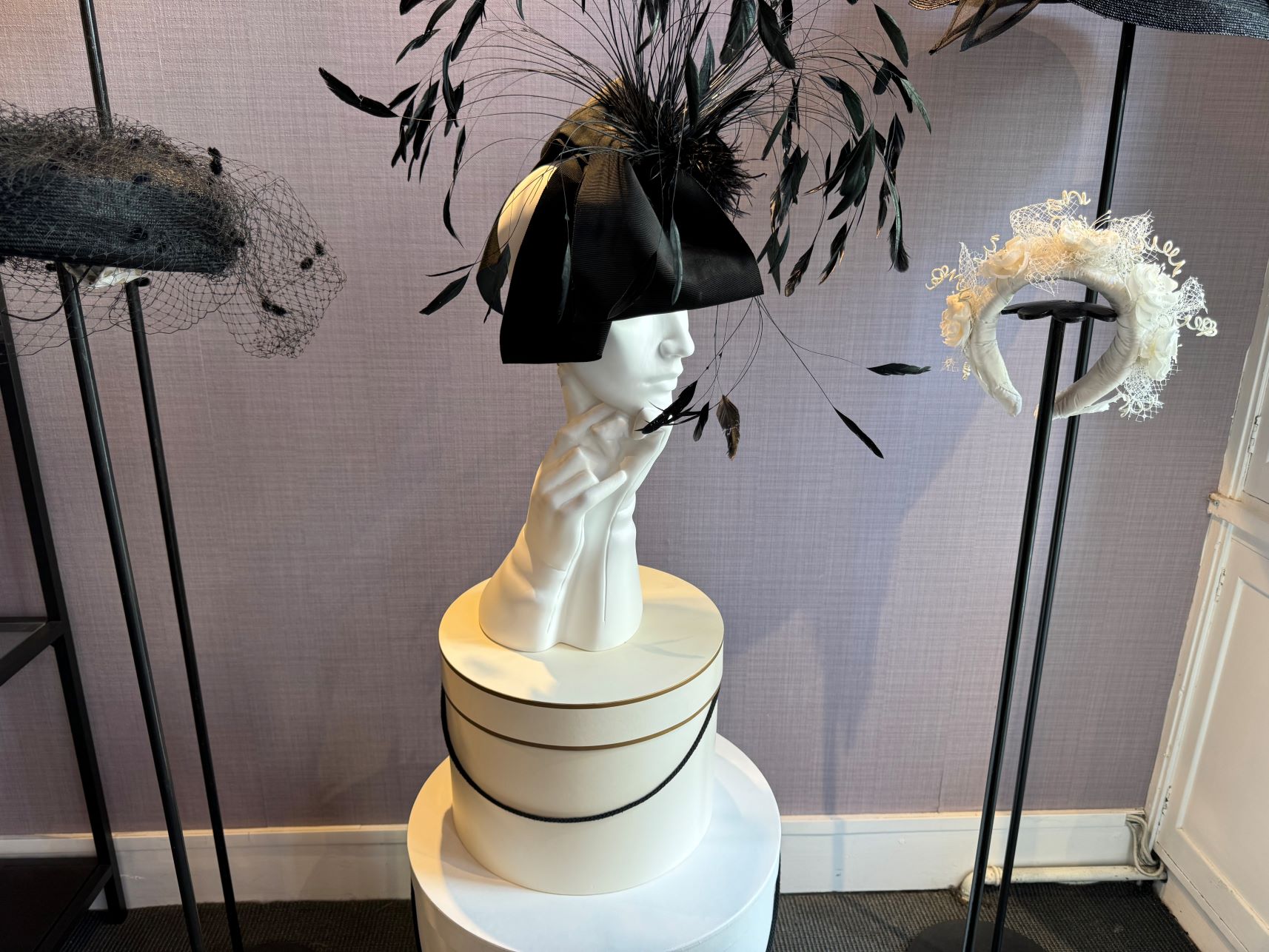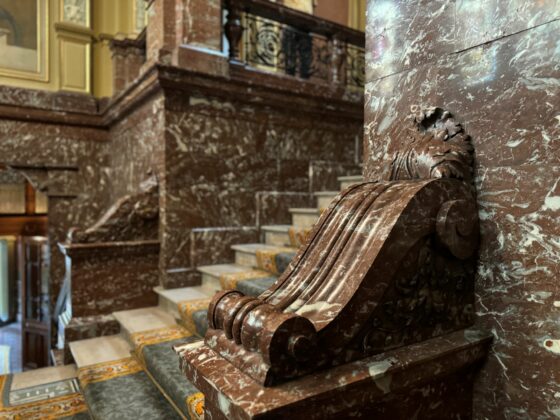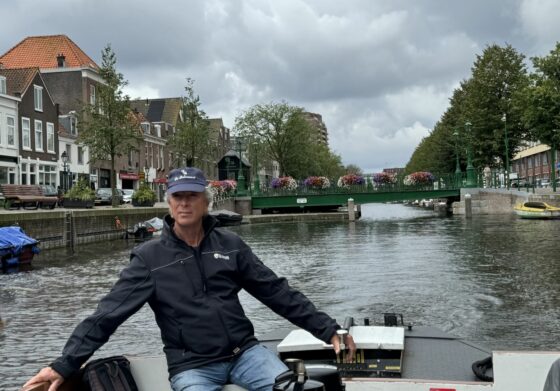“Royal September” links politics with royal city The Hague
Senay Boztas
They are royal “thrones” – but not the ones that are normally on public display.
Part of a flurry of events to drum up interest in The Hague around budget day, the royal waiting room at Hollands Spoor station is open for a limited public.
You’d never know it, explains guide Norman Vervat, but next to platform 1 is a series of historic rooms (and, shall we say, facilities) the size of a small house, for the benefit of a few annual visits from the Dutch royals.
The details in this 1893 neo-renaissance wing, developed by railway architect Dirk Margadant, are extraordinary: a classic blue arch gives onto a sweeping, carpeted staircase, with beautiful, decorative marble and stained-glass windows. The suites upstairs include hand-painted trompe l’oeil wallpaper, an intricate parquet floor, private balcony and two “rest rooms” with the dimensions of the average Dutch apartment.
It was all developed, said Vervat, at a time when the royal train was the primary mode of transport and the royals were all-powerful. “It really has the feel of a palace,” he said. “But it was also focused on receiving people, to show that the Netherlands was an important, wealthy land and that we could make beautiful things.”

With the same idea in mind, the Dutch city of government and courts is branding itself a luxury destination in the month of “Royal September”. That royal waiting room is one of the options open – to a ticketed public – on Open Monument Day on September 14.
Although the timing has varied a little, since 1814, the Prinsjesdag day that used to celebrate the princes of the house of Orange has mutated into the royal opening of the parliamentary year and announcement of the government’s plans. Ten days before this budget day on the third Tuesday of the month, there’s a series of events to attempt to excite the public appetite.
Evalien Timmers, director of the democracy-themed celebration Prinsjesfestival, from 11th to 17th September, admitted that there were concerns about empty public seats at the hat-wearing budget day in recent years. “We are trying to bring the concept ‘democracy’ to everyone’s attention in an approachable way,” she said at a press preview.
From a big breakfast alongside the Hofvijver on September 14 to book awards and debates, the festival aims to bridge ideological divides and combat political apathy. On Monday 16 September, there’s a musical celebration, PrinsjesNach. Meanwhile the Senate, which also wants to start the parliamentary year with more jazz, is planning to latch on its own ‘week of democracy” events next year.
Although you might be able to see the royal family waving from the balcony at their working palace Noordeinde, you’ve missed the annual chance to see inside: each year, some 43,000 visitors stream into its massive-ceilinged rooms and horse-friendly stables in July and August while the family is on holiday. It’s your only chance to see the controversial “golden coach” which the Dutch king Willem-Alexander used to ride in to deliver the budget, but which has been retired for its negative colonial associations.

Still, the city still wants to assure visitors they will be treated like royalty. Diana Boer, area manager for central shopping district, is borrowing a phrase from Edinburgh and transforming it into the “royal mile”, with a “luxury shopping route” to link perfume shops and fashion stops to a boutique hotel. (Fashion lovers should also visit the Dior – A New Look exhibition at the Kunstmuseum, from September 21.) Visiting the city by boat is another option – although mind your head with the low bridges and nesting pigeons.
Prinsjesdag is most famous for being an occasion for the great and the good of the Netherlands to wear fantastic hats, though. Even if the budget and politics leave you cold, this is an extraordinary aspect of Dutch history and craftsmanship. Craftwomanship would be a better word for Berry Rutjes, the queen’s hatmaker who has an atelier and runs Dutch Hat Academy courses in the heart of The Hague.
“Hat wearing is a cultural thing,” she said, in her boutique full of extraordinarily light, comfortable and flattering headwear. “Prinsjesdag is a bit of hilarity, but you do want to make people look more attractive. You don’t want a statement.”
Whatever the statement made by this year’s budget, “Royal September” in the Hague aims to lift the spirits.
Find our more about Royal September, Prinsjesfestival and PrinsjesNach here
Thank you for donating to DutchNews.nl.
We could not provide the Dutch News service, and keep it free of charge, without the generous support of our readers. Your donations allow us to report on issues you tell us matter, and provide you with a summary of the most important Dutch news each day.
Make a donation